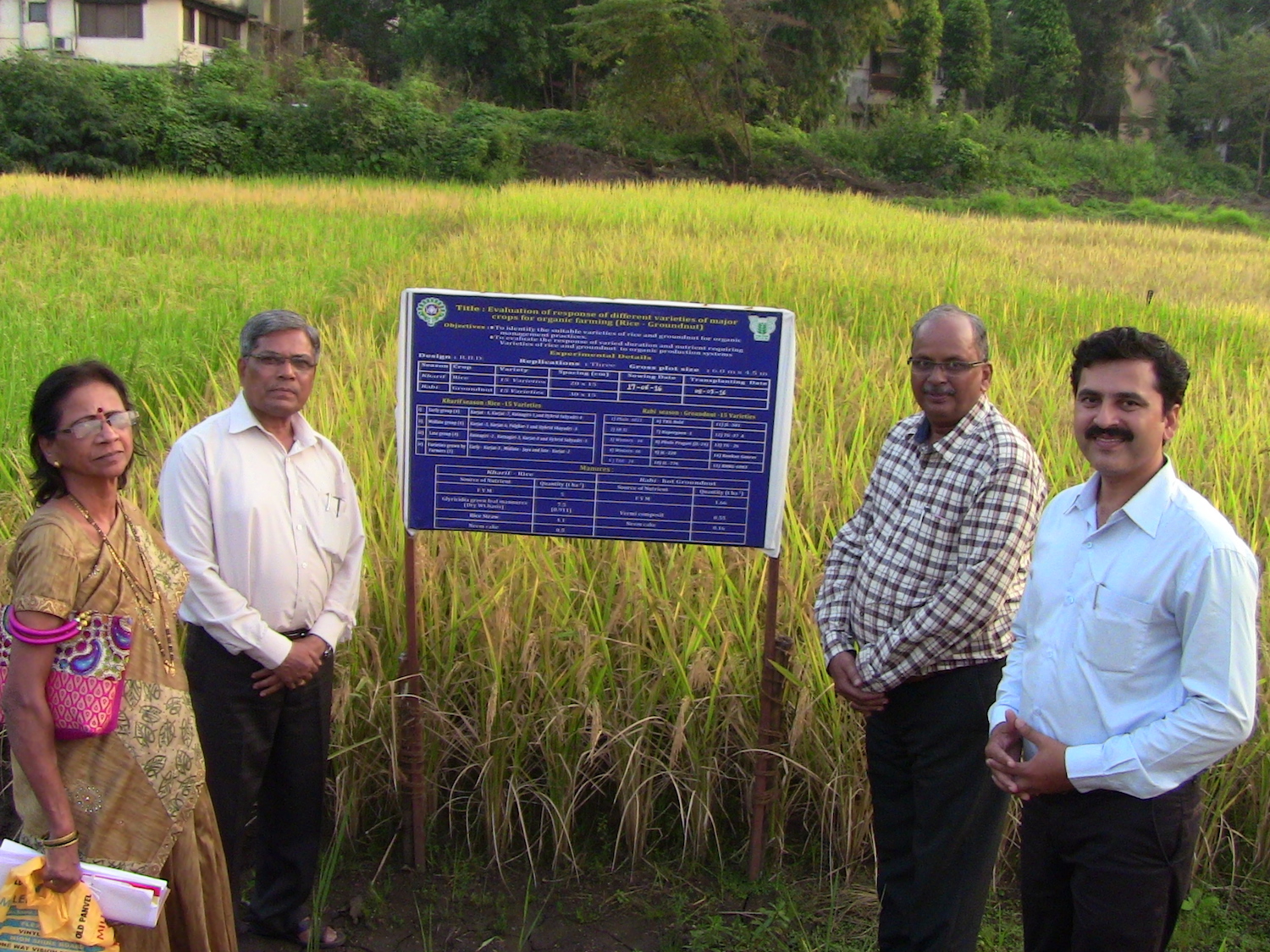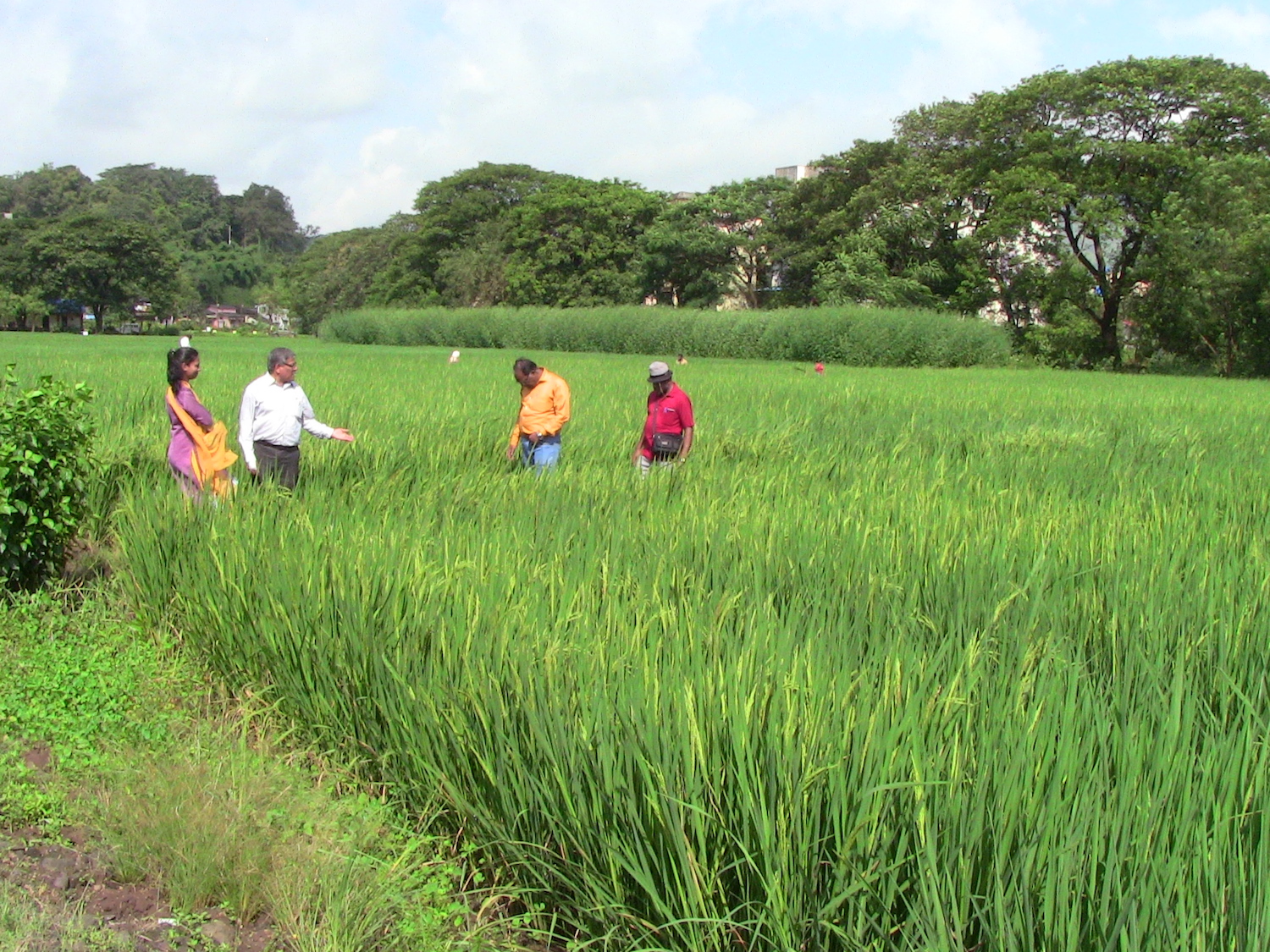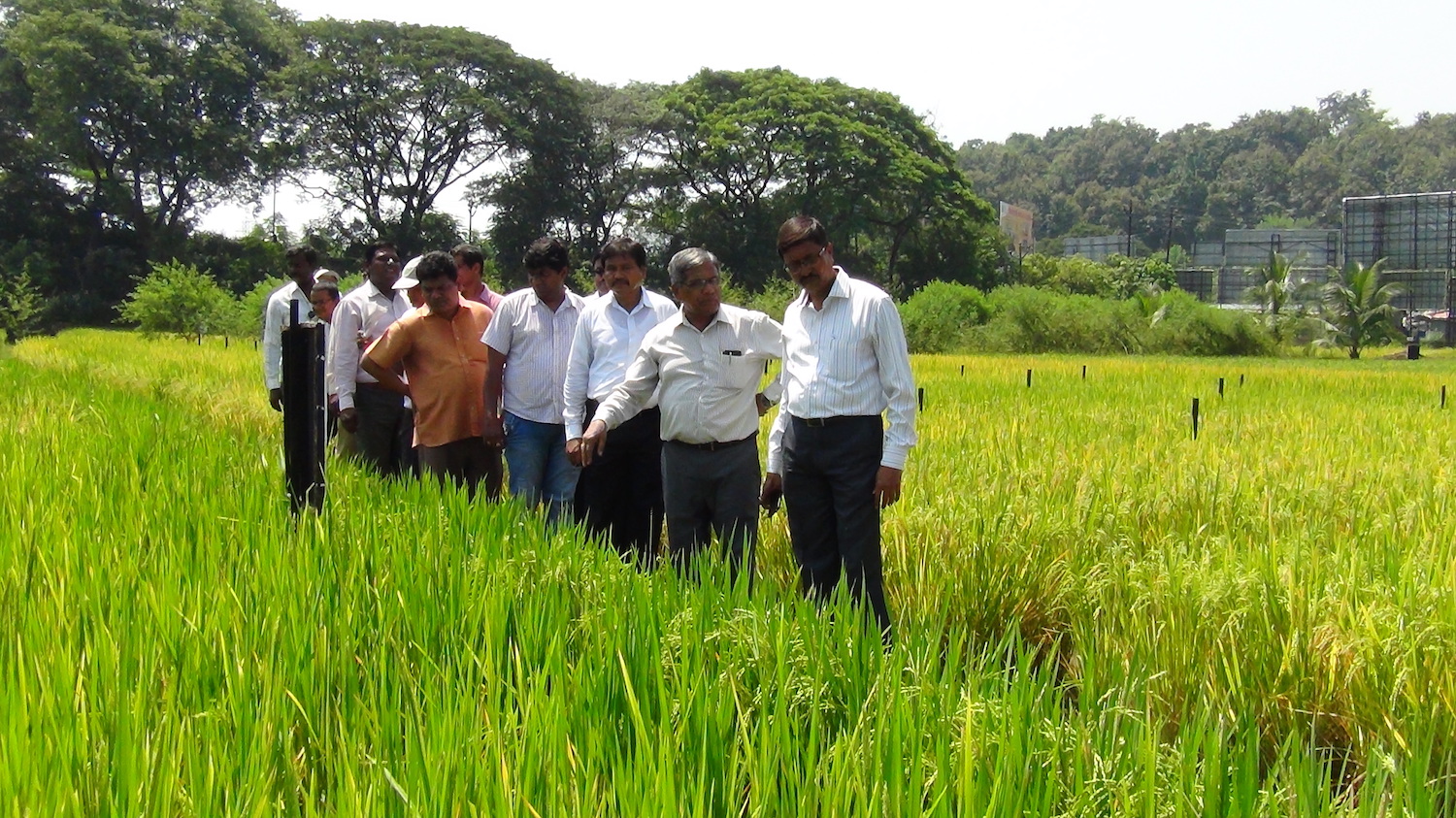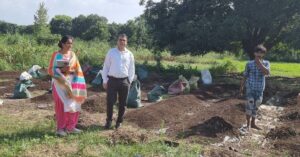100 Years & Over 20 Varieties: Celebrating India’s First Rice Research Institute
One of the oldest agricultural research stations in India dedicated to rice research, RARS Karjat completes a century in August 2019.

Are you aware that Karjat, the last suburban station on Mumbai’s Central Railway corridor, is home to the country’s first rice research institute—the Regional Agricultural Research Station (RARS)?
One of the oldest agricultural research stations in India dedicated to rice research, RARS Karjat completes a century in August 2019.
Presently under the Dr Balasaheb Sawant Konkan Krishi Vidyapeeth (DBSKKV), RARS Karjat, initially founded in the British era, was established by the Government of Bombay Province with a view to develop and improve rice strains from existing tall varieties of the then Thane (now Thane and Palghar) and Kolaba (now Raigad) districts.
A pioneer in rice research, it is the third in the country following the establishment of Coimbatore and Shirgaon Research Stations.

Over the years, the control of the research station changed hands from the Department of Agriculture to the Maharashtra Agricultural University (Pune) to Mahatma Phule Agricultural University (Rahuri), and since 1972 it has been under the control of DBSKKV.
Also Read: Reap What You Sow! Mangaluru Students Grow 1.4 Tonnes of Rice on Fallow Land
The primary mandate of RARS Karjat is the development of high-yielding, pest and disease tolerant/resistant rice varieties and hybrids for the state of Maharashtra. For its excellent performance, it has received an “A-Grade” award from the Indian Council of Agriculture Research while the State government has conferred it the “Award of Excellence.”
In its 100 years of its existence, RARS Karjat has hosted 34 rice breeders — traditionally referred to as ‘rice specialists’ — the first being Professor SD Bhalerao.
The second most important crop in Maharashtra, rice is grown over an area of 14.99 lakh hectares, and the annual rice production of the state is approximately 32.37 lakh tonnes.

With the average productivity of the state at 2.01 tonnes per hectare (t/ha), the state is ranked 13 in terms of rice production in the country.
Although the Vidarbha region has a greater area of the rice crop, the highest productivity has been observed in the Konkan region. However, its average productivity is less as compared to other rice-growing states like Panjab, Tamil Nadu, Haryana, Andhra Pradesh etc.
So far, agricultural universities in the state have released a total of 61 high yielding varieties, including five rice hybrids and developed an improved package of practices for the cultivation of rice crop since 1970.
Between 1919 and 1970, RARS Karjat selected and developed ten rice varieties. From 1972, when it came under the control of DBSKKV, till today, it has developed 11 high yielding straight rice varieties and 4 hybrid varieties.
While the straight varieties have a yield between 35 and 55 quintal/ha, and the hybrid ones a yield between 55 and 70 quintal/ha. Grown mostly in the Konkan region, which witnesses 3555mm of rainfall, the straight varieties have had a phenomenal yield compared to the erstwhile 10 to 12 quintal/ha.
The semi-dwarf and high yielding varieties have been instrumental in an exceptional increase in the rice production in the state. Interestingly, the Konkan region contributes to approximately 29.65% of the state’s total rice production as against the area of 23.70 percent.
In the year 1998, RARS Karjat developed a variety of hybrid rice, known as ‘Sahyadri’ the first rice hybrid in Maharashtra and the third in India. In the subsequent years came ‘Sahyadri-2’, ‘Sahyadri-3’ and ‘Sahyadri-4’ were released.
The most popular high yielding varieties of rice developed by it are Karjat-2, Karjat-3, Karjat-7, Karjat-8, Karjat-184, and hybrids Sahyadri and Sahyadri-4. RARS Karjat has entered into MOU with seed producing companies providing them with parental lines and in return receives a royalty for the same.
“A long and slender variety which takes between 115 to 120 days and released in 2008, Sahyadri-4 has performed extremely well in Punjab, Haryana, Uttar Pradesh, West Bengal and Maharashtra achieving close to 100 quintals per ha while Sahyadri 3 which has an average yield of 60 plus quintal/ha has the potential of reaching 108 quintals/ha,” says Rice Specialist Dr AK Shinde. He adds that, “We have MOUs with seven seed producing companies, based in Hyderabad, Wardha, Uttarakhand, Jalgaon and Bhuvaneshwar, for the large-scale production of Sahyadri-4.”
According to Dr Shinde, some of the reasons why there are constraints in rice production in the state, are as follows:

1) Most rice growers are small farmers and with inadequate resources.
2) Low and imbalanced use of manures and fertilisers.
3) Heavy rains in Konkan deplete plant nutrients.
4) Less area under hybrid rice cultivation.
5) The high cost of cultivation.
Currently, rice breeders on the 39-acre campus are working on three high-yielding varieties, namely BARCKKV 13, BM4 and Karjat 10 which matures between 120 to 145 days. “The Karjat 10 is a long slender rice with average grain yield between 5.0 to 5.2 t/ha,” says Dr LS Chavan, Additional Director, RARS, Karjat.
Also Read: This Amazing 11-Year-Old Girl Transformed Her Courtyard Into a Lush Vegetable Garden!
RARS Karjat is home to the offices of the All India Coordinated Research Project on Integrated Farming System (AICRP on IFS) and Network Project on Organic Farming (NPOF). Talking about his plans, Dr Chavan says that, “We are working on the evolution of high yielding, fertiliser responsive rice varieties of different duration and grain types. Besides we are working on developing aromatic rice varieties, nutrition-rich varieties, pest-resistant ones and shade as well as salt tolerant ones.”
For its centenary year, RARS Karjat has chalked out various events, and the celebrations will be a year-long affair! Activities being planned include brainstorming sessions, workshops, exhibitions, Farmer’s Day celebrations, and even an exhibition on rice.
(Written by Hiren Kumar Bose)
Like this story? Or have something to share? Write to us: [email protected], or connect with us on Facebook and Twitter.
NEW: Click here to get positive news on WhatsApp!
If you found our stories insightful, informative, or even just enjoyable, we invite you to consider making a voluntary payment to support the work we do at The Better India. Your contribution helps us continue producing quality content that educates, inspires, and drives positive change.
Choose one of the payment options below for your contribution-
By paying for the stories you value, you directly contribute to sustaining our efforts focused on making a difference in the world. Together, let's ensure that impactful stories continue to be told and shared, enriching lives and communities alike.
Thank you for your support. Here are some frequently asked questions you might find helpful to know why you are contributing?


This story made me
-
97
-
121
-
89
-
167














